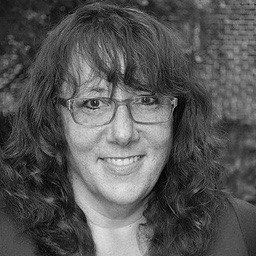 Photo by Debra Nussbaum Cohen
Photo by Debra Nussbaum Cohen On the first night of Hanukkah, 230 Jews stood in concentric circles filling the sanctuary at Manhattan’s Congregation B’nai Jeshurun, singing together.
They sang for an hour, broke for candle lighting and a dinner of latkes and baked ziti, then gathered again for more singing from the Rising Song Institute’s Rising Song Intensive (RSI). They were led in soulful, slow versions of “Shir HaMaalot” and “Gesher Tzar Me’od” by Joey Weisenberg, a leader and creator of the new nigun movement, and Rabbi Yosef Goldman, another Jewish singer-songwriter who recently debuted an album.
As the pace picked up, Russ Agdern energetically stomped his feet along with the beat. Agdern is a founder and prayer coordinator of Shir HaMaalot, a popular monthly Friday night chavurah in Prospect Heights, Brooklyn. “Singing with other people really fills me up to do the other work I do in the world,” said Agdern, 42, who by day is an organizer for the Reform movement. He has been to every RSI since 2012.
For Agdern, this is the work of his heart. “I want to be a better service leader and there are a lot of really great teachers” at RSI, he said. “I love learning about Jewish music and new melodies, things I can use for prayer and other song spaces.”
Goldman added singing is powerful because “people have a core need to belong, to feel part of something meaningful and through group singing, especially nigunim, where barrier of language is removed, people can connect to something greater than themselves. There’s something inherently prayerful about the experience.”
RSI and its parent, Rising Song Institute, are run by Hadar Institute, on Manhattan’s Upper West Side. Hadar holds adult Torah learning programs and this year added a rabbinical ordination track. The Rising Song Institute was added two years ago although the intensive program began in 2011.
“Interest has been growing steadily for 15 years, for as long as I’ve been teaching,” said Weisenberg, the prolific and charismatic singer-songwriter who is an RSI co-founder and leader. “For us, it’s an opportunity to get a lot of voices into the game, about what we can all make together.”
Only 23 people participated in the first RSI in 2011. The following year there were 29.
There’s nothing new about Jewish music as a way to draw people together. Debbie Friedman, z”l, transposed the structure and simplicity of American folk music onto Jewish texts, creating a hugely popular body of work, as did Rabbi Shlomo Carlebach. The tradition dates back to biblical times.
There are a few other programs around the country: Let My People Sing in Connecticut, is independent and meets at the end of the summer, with a focus on social justice. Song Leader Bootcamp in St. Louis MO. meets in February, geared toward Jewish educators, and Hava Nashira, in Milwaukee WI. co-founded by Friedman, is a Reform movement song leading conference.
RSI draws college students to people long collecting Social Security, and mostly laypeople like Agdern along with a few professional worship leaders, like cantors. Participants come from around the corner and from as far away as Florida and Winnipeg, Canada.
“Through group singing, especially nigunim, where barrier of language is removed, people can connect to something greater than themselves.”
— Rabbi Yosef Goldman
Viva Hammer traveled from Sydney. She leads Jewish prayer gatherings around the world, and came to learn “methods to get people who are otherwise not accustomed to joining the leader in song more participating. Prayer needs to be song. Without song, prayer is practically empty,” she said.
Christmas Day was the retreat’s last day. The concluding public concert filled B’nai Jeshurun’s Moorish sanctuary to capacity with more than 700 people for a performance by Weisenberg, Goldman, Deborah Sacks Mintz and the Hadar Ensemble.
Young adults and seniors alike were on their feet, dancing to familiar words of Jewish music set to new melodies, a sense of oneness permeating the space as those in attendance enjoyed making what is old, new again.
Debra Nussbaum Cohen is a journalist in New York City.






















 More news and opinions than at a Shabbat dinner, right in your inbox.
More news and opinions than at a Shabbat dinner, right in your inbox.